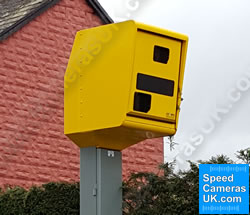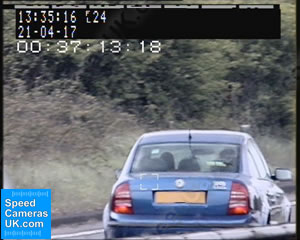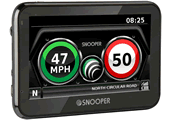Home / Speeding Fines / Motoring Lawyer / Motoring Offences / Motoring Insurance Premiums
Speeding fines to rose on April 2017
Current speeding fines
 The maximum fine for speeding is currently £1,000. The maximum penalty rises to £2,500 if you are caught speeding on a motorway.
The maximum fine for speeding is currently £1,000. The maximum penalty rises to £2,500 if you are caught speeding on a motorway.
The current minimum fine for speeding is £100 and three points on your driving licence. Plus, if your speeding fine is the being added to a clean licence the police often give you the option of attending a speed awareness course instead of enforcing the fine and penalty points. If you do not have a clean licence at the time of the offence the police do not offer the police awareness course as an option.
New speeding fines
The new rules for speeding fines come into affect from 24th April 2017. There are now three bands (A, B and C) and your speeding fine amount payable depend on your weekly wage from your employment. The other factor affecting how much your speeding fine will be is the circumstances within which you were caught speeding. For example, if you were caught in a highly populated area such as London the fine would be higher. Another factor considered is weather conditions such as was it raining and should you have been taking more care by driving below the speed limit? Previous convictions will also be looked at when your speeding fine is calculated.
New speeding fines calculator
The two tables below explain the percentage of your weekly income that determines your speed fine.
How to calculate your weekly wage: To calculate you weekly income simply divide your annual income by 52. If you earned £20,000 annually. Your weekly wage is 20,000 / 52 which is £384.62.
How to calculate your speeding fine: Use the second table below to find the percentage of your weekly wage the speed fine will be calculated at. To calculate percentages simply multiply your weekly wage by the percentage (i.e. 50% would be 50, 175% would be 175, etc.) and then that number divided by 100.
| Speed limit | Recorded speed of your vehicle by the police in MPH (Bands A, B and C) | ||
Band C |
Band B |
Band A |
|
20mph |
41 and above |
31-41 |
21-30 |
30mph |
51 and above |
41-50 |
31-40 |
40mph |
66 and above |
56-65 |
44-55 |
50mph |
76 and above |
66-75 |
51-65 |
60mph |
91 and above |
81-90 |
61-80 |
70mph |
101 and above |
91-100 |
71-90 |
| Points/Disqualification | Disqualify 7 to 56 days or 6 points | Disqualify 7 to 28 days or 4 to 6 points | 3 points |
Adjustments rates
The amount you are fined for speeding is adjustable by the enforcing police officer or court attended. The below table explains the starting point which is the normal speeding fine (as a percentage of your weekly wage). The range explains the lowest to the highest monetary speeding fine you can be made to pay for a speeding offence. Generally it is 25% more and 25% less than the starting point of the speeding fine.
| Starting Point | Range | |
| Fine Band A | 50% of weekly income | 25 - 75% of weekly income |
| Fine Band B | 100% of weekly income | 75 - 125% of weekly income |
| Fine Band C | 150% of weekly income | 125 - 175% of weekly income |
Speeding offence codes
When you are issued a speeding fine each speeding offence is known by a certain code. The code for speeding above the speed limit will be either SP10, SP20, SP30, SP40 or SP50.
SP10 - Exceeding goods vehicle speed limits
The code for your speeding fine will be SP10 if you were driving a goods vehicle under 7.5 tonnes. Such vehicles are small lorries. In some circumstance this also includes motorhomes and caravans.
SP20 - Exceeding speed limit for type of vehicle (excluding goods or passenger vehicles)
SP20 is not a code used very often. Vehicles affected include tractors and other industrial vehicles.
SP30 - Exceeding statutory speed limit on a public road
SP30 is the most common speeding code you will come across in the UK. This refers to cars, vans, motorbikes, etc. which are caught speeding at the signposted speed limit for the road.
SP40 - Exceeding passenger vehicle speed limit
Some passenger vehicles which are larger than cars are subject to different speed limits on UK roads. Such passenger vehicles may include buses, coaches, etc. These vehicles speeding fine code will be SP40.
SP50 - Exceeding speed limit on a motorway
The speed limit on most motorways is 70MPH and if you are caught speeding on a motorway the code used by the police on your speeding ticket will be SP50. Some motorways have variable speed cameras and therefore enforce a lower speed limit than 70MPH. Furthermore, some vehicles will be required to drive at a different maximum speed such as goods vehicles over 7.5 tonnes and cars towing a caravan.

Knowing the speed limit in advance for all roads in the UK
You can protect your licence using a device that tells you all of the speed limits of all roads across the UK.
 The most comprehensive device is by Snooper called the Snooper MY-SPEED XL. The My Speed XL displays on screen the road speed limit of every road in across Europe as well as your speed. If you are speeding there will be a red circle around your speed and if you are below the speed limit the speed readout on screen will feature a green circle around it. You will also receive audible warnings if you are driving above the speed limit. This Snooper is also a speed camera detector but it is only GPS and there is no radar or laser technology for detecting mobile speed camera locations.
The most comprehensive device is by Snooper called the Snooper MY-SPEED XL. The My Speed XL displays on screen the road speed limit of every road in across Europe as well as your speed. If you are speeding there will be a red circle around your speed and if you are below the speed limit the speed readout on screen will feature a green circle around it. You will also receive audible warnings if you are driving above the speed limit. This Snooper is also a speed camera detector but it is only GPS and there is no radar or laser technology for detecting mobile speed camera locations.
Last updated: 15th September 2025

